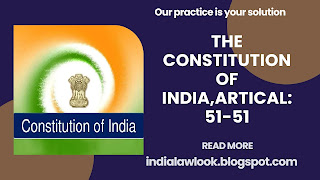 |
| AMENDMENTS SECTION OF: 1-4 |
THE CONSTITUTION (SIXTY-SEVENTH AMENDMENT) ACT, 1990
SECTION OF: 1-4
SIXTY-SEVENTH AMENDMENT
Statement of Objects and Reasons appended to the Constitution(Seventy-sixth Amendment) Bill, 1990 (Bill No. 158 of 1990) which wasenacted as THE CONSTITUTION (Sixty-seventh Amendment) Act, 1990
STATEMENT OF OBJECT AND REASONS
Under clause (4) of article 356 of the Constitution, no Proclamationissued under that article and approved by both the Houses ofParliament shall remain in force for more than three years. However,under clause (5) of the said article, a resolution approving thecontinuance in force of a Proclamation issued under clause (1) of thatarticle beyond a period of one year cannot be passed by either Houseof Parliament unless the two conditions relating to a Proclamation ofEmergency being in operation in the whole or any part of the State andthe certificate by the Election Commission that the continuation ofthe Proclamation issued under clause (1) is necessary on account ofdifficulties in holding general elections to the Legislative Assemblyof the State as specified in that clause are met. The three yearperiod in the case of Proclamation issued on 11th May, 1987 withrespect to the State of Punjab was extended to three years and sixmonths by the Constitution (Sixty-fourth Amendment) Act, 1990 andclause (5) of article 356 was also suitably amended by that Act in theexpectation that it would be possible to hold elections to theLegislative Assembly of that State. The prevailing circumstances inthe State, however, still do not hold out prospects for free andpeaceful elections to the State Legislative Assembly. Clause (4) ofarticle 356 of the Constitution is, therefore, proposed to be amendedso as to facilitate the extension of the said Proclamation up to atotal period of four years in relation to the State of Punjab.
2. The Bill seeks to achieve the above objects.
NEW DELHI; MUFTI MOHAMMED SAYEED
The 1st October, 1990.
THE CONSTITUTION (SIXTY-SEVENTH AMENDMENT) ACT, 1990
[4th October, 1990.]
An Act further to amend the Constitution of India.
BE it enacted by Parliament in the Forty-first Year of the Republic ofIndia as follows:-
1. Short title.- This Act may be called the Constitution(Sixty-seventh Amendment) Act, 1990.
2. Amendment of article 356.-In article 356 of the Constitution, inclause (4), in the third proviso, for the words "three years and sixmonths", the words "four years" shall be substituted.
FAQ
What is the first category of amendments?
The first category of amendments are those which fall under Articles 4(2), 169, 239A(2), 239AA(7b), 243M(4b), 243ZC(3), 244A(4), 312(4), para 7(2) of Schedule V and para 21(2) of Schedule VI. These amendments can be made by Parliament by a simple majority, as is required to pass any ordinary law.
What are the amendments to the Constitution?
1. Dy. By section of the Constitution (Seventh Amendment) Act, 1956. 17, for the heading "States in Part C of the First Schedule" (w.e.f. 1-11-1956). 2. Sub. As above, for Art. 239 and 240. 3. In. By section of the Constitution (Fourteenth Amendment) Act, 1962. 4 (from 28-12-1962) 4.
What are the amendments in Article 150 of the Constitution?
Amendment of Article 150.- In Article 150 of the Constitution, for the words "after consultation", the words "on the advice of" will be substituted. 23. Amendment of Article 166-Clause (4) of Article 166 of the Constitution shall be deleted. 24. Amendment of Article 172.-
ARTICLE RELATED TO:
real estate, the Bill of Rights, the Constitution,1st Amendment,2nd Amendment,4th Amendment,5th Amendment,6th Amendment, First Amendment, second amendment, Fourth Amendment, fifth amendment, Sixth Amendment,wkrg,wkrgnews5, simple, AP,apush, civics, documentary, xxvii, our history, explained, united states (country), framers, study, constitution, review, us, basic, government, history, overview, American, laws, test, bill of rights
.jpg)







.webp)




.jpg)





%20(1).webp)














.webp)






